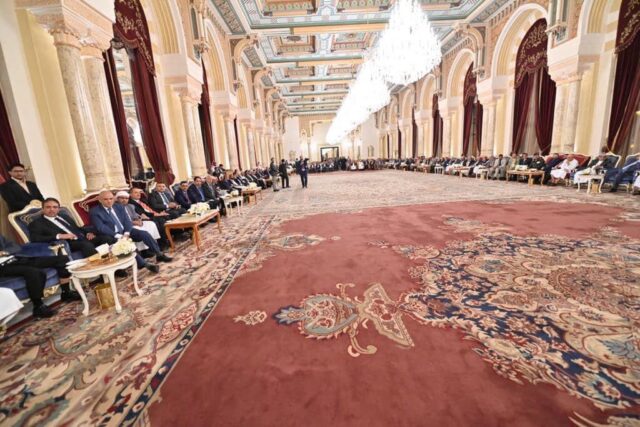In what might bring in some hope for peace and stability, Yemen’s exiled President Abd-Rabbu Mansour Hadi has transferred his powers to a new presidential council. This step is seen as a major political event that might bring an end to seven years of civil wars. The conflicting parties are under a two-month fragile truce.
Announcing the move early today, Hadi said, “I irreversibly delegate to this presidential leadership council my full powers.”
The announcement comes on the final day of peace talks being held in the Saudi Arabian capital. Saudi Arabia has been leading a military coalition against the Houthi rebels. The coalition also backs Yemen’s government which is internationally recognized.
The President also said that the council would be negotiating with the rebels “for a permanent ceasefire”.
The leader also sacked Vice President Ali Mohsen al-Ahmar. Al-Ahmar was a powerful military official. In the latest shake-up, al-Ahmar’s powers have also been given to the presidential council.
Rebel Houthis are opposed to Al-Ahmar. He had launched military campaigns in the past. He ran campaigns in their stronghold in the north. He also played a crucial role during the north-south civil war in 1994.
Post this announcement by Hadi, Saudi Arabia, and the UAE are likely to release $3 billion to help the war-ravaged economy of Yemen. The UAE also supports the military coalition. Saudi Arabia has also called for an international conference for Yemen.
Observers have welcomed these latest changes to political power and hope that they will bring positive changes to the country.
According to reports, Rashad al-Alimi will chair the new presidential council. Al-Alimi is an adviser to President Hadi. He also served as the former interior minister in the government of late President Ali Abdullah Saleh.
Al-Alimi is known to enjoy close ties with Saudi Arabia. He is also popular with other political factions within Yemen, including the Islah party. The Islah party is a powerful group in Yemen and is the transnational Muslim Brotherhood’s branch in the country.
Other than Al-Alimi, the council has seven other members. Like Al-Alimi, the rest of the members are also influential figures in the country’s military and political setup. Aydarous al-Zubaidi, one of the members is the head of the secessionist Southern Transitional Council (STC). The STC enjoys the support of the UAE and is a coalition of heavily armed and well-financed militias.
The governor of energy-rich Marib province Sheikh Sultan al-Aradah is also a member of the council. Militia leader Tariq Saleh, who is also the nephew of the late president and enjoys the UAE’s confidence, is also included in the council.









